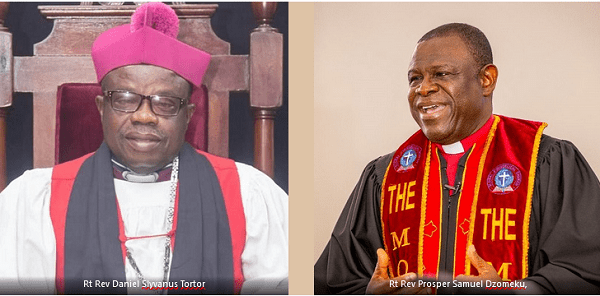We will resist any attempt by foreign individuals and organisations to impose LGBTQ+ on Ghana, some religious leaders in the country have warned.
According to the religious leaders, they have taken notice of the relentless efforts by some individuals and groups to force down the abominable practice on Ghanaians, and every means possible would be adopted to resist it in the country.
The warning comes in the wake of recent remarks by the United States (US) Ambassador to Ghana, Virginia Palmer, on the promotion of Lesbian Gay Bisexual Transgender and Queer (LGBTQ+).
In her remarks, Ms Palmer cautioned that Ghana could lose LGBTQ+ investors and other American businesses if care was not taken with the proposed anti-LGBTQ+ bill.
The proposed Anti-LGBTQ+ Bill, which is currently at the consideration stage in Parliament seeks to criminalise LGBTQ+ activities, prevent the promotion and advocacy of LGBTQ+ content and provided support and protection for children and individuals associated with LGBTQ+ matters in the country.
Speaking to the Ghanaian Times in separate interviews in Accra last Friday, the Anglican Bishop of Accra, Right Reverend Dr Daniel Sylvanus Mensah Torto, said that the remark by the Ambassador was a threat to the country.
He said every country was independent and any agenda from another country should not be forced on the country.
Rt Rev. Torto said it was important that the state took steps to immediately engage the US on her stance on LGBTQ+ and the threat it posed for the country.
“It is like they are forcing their culture on us,” he said.
The Moderator of the Global Evangelical Church, Rt Rev. Prosper Samuel Dzomeku, on his part said there was the need to clearly state its stance on the matter, stressing that “This is rooted in evangelical faith, cultural values, and the national psyche that define our great nation.”
He said the country’s cultural values and national identity play a pivotal role in shaping the fabric of Ghanaian society, adding “For centuries, our diverse ethnic communities have coexisted harmoniously, preserving unique customs and traditions that have made our nation a tapestry of beauty and unity,”
Rt Rev. Dzomekuwe said even though it was good to promote inclusivity and tolerance, it must be within the bounds of our cultural heritage, saying “it is important to note that our stance on this matter does not seek to destroy international relationships or deter foreign investment.”
He said as a country “We value the friendship and cooperation we share with nations around the world, including the United States of America, however, our commitment to our faith, values, and national identity is unwavering. We firmly believe that these principles contribute to the stability and strength of our nation’’.
BY ANITA NYARKO –YIRENKYI

